The renowned Costa Rican-Spanish artist Aimée Joaristi comes to Madrid with her most recent exhibition, “Happy World,” an exhibition that brings together 18 unpublished works from various series, including Happy World, Distopías, A piece of me and Drawings of Awakening.
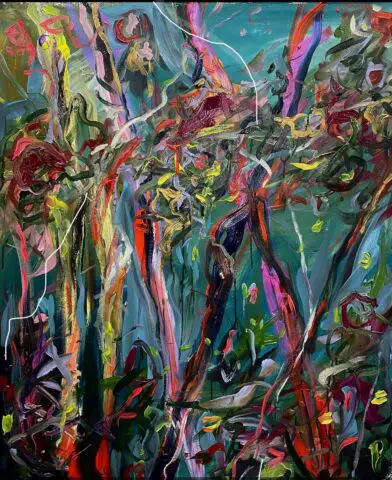
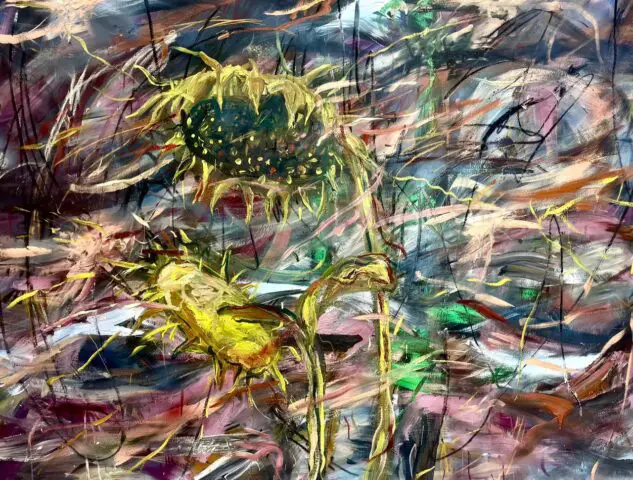
The exhibition, curated by the Colombian-Spanish curator and critic Carlos Jiménez, will be open to the public from February 11 to 23 at the MADOS Gallery (Calle Conde de Xiquena, 12, Left).
The opening took place on February 10. Among the activities of the exhibition, there will be a round table on February 11 at 7 p.m. in the same gallery, to talk with the artist, Aimée Joaristi, the curator Carlos Jiménez, and with the additional participation of Fernando Castro Flórez and Suset Sánchez, prominent people of criticism and curatorship in Spain.
Under the disturbing title Happy World, Aimée Joaristi offers a tour of her anguish and joys through paintings, drawings, engravings and sculptures. Carlos Jiménez highlights that the artist “paints with her entire body, making each work a commitment and a promise of artistic reaffirmation.”
For her part, Aimée defines this exhibition as “an exploration of a dystopian world where human emotions are intertwined with images and objects loaded with meaning.” Among the series in the exhibition, “Dystopias” reflects the artist’s reaction to global conflicts, such as the war in the Middle East.
According to Cuban critic David Mateo, Dystopias is “an exercise in emotional and conceptual reflection that explores mental landscapes and chaotic scenarios.” Meanwhile, “Drawings of Awakening,” inspired by the artist’s first drawings, is a reinterpretation that includes sculptures, animations, and silkscreens. Aimée describes these works as “architectural twists and turns and symbolic representations of impossible realities.”
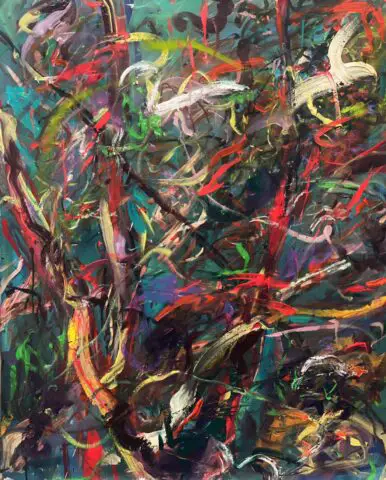
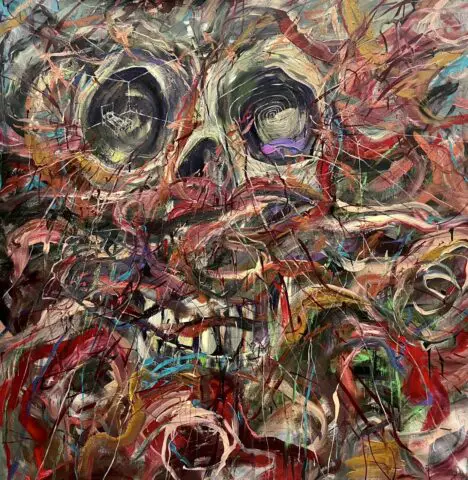
Known for her versatility and passion, Aimée Joaristi has developed a career that ranges from performances to installations and videos. However, her main focus remains painting, a medium she uses as a tool to capture emotional complexity and contemporary reality. Her works, characterized by energetic brushstrokes and unmistakable gestures, seek to reaffirm the importance of individuality in a world dominated by ephemeral images.
The exhibition “Happy World” is an opportunity to delve into the creative universe of Aimée Joaristi, where each work becomes a testimony of the artist’s commitment to her art and to the reality that surrounds her.
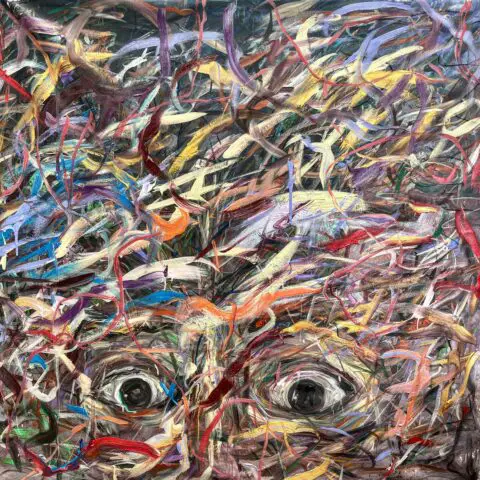
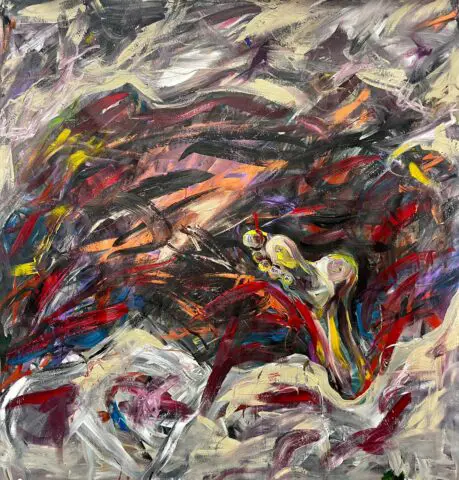
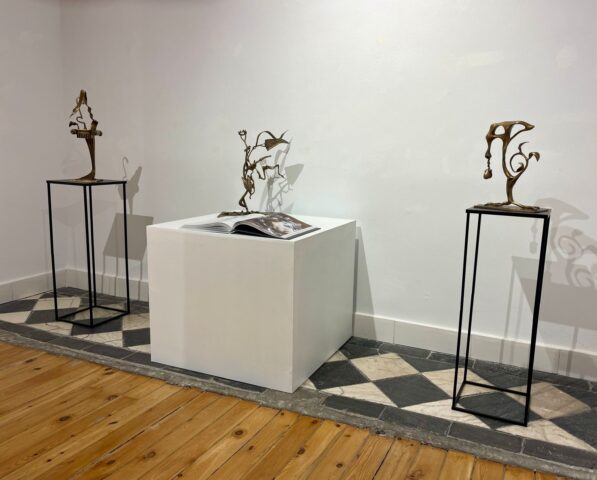
Free admission. More information on the social networks of the MADOS Gallery and the artist.
About the artist:
Aimée Joaristi (Havana, Cuba, 1957) was born in Cuba, a Costa Rican-Spanish artist who is a multidisciplinary artist who explores themes related to unconsciousness, playful transgression, Cuban migration, and female vindication and the destruction of nature in her recent works.
From painting and installation to performance, photography, video art and short films, multiple media are conceived as another channel of communication for those messages that are born from intuition and self-exploration. Among his notable exhibitions are the 1st SACO International Biennial of Contemporary Art 2021, 13th Havana Biennial 2019, the Mantova International Biennial of Contemporary Art 2017, the Guayaquil Biennial 2016, the 5th Riga International Triennial of Fiber and Textile Art 2015, and several editions of Juannio.
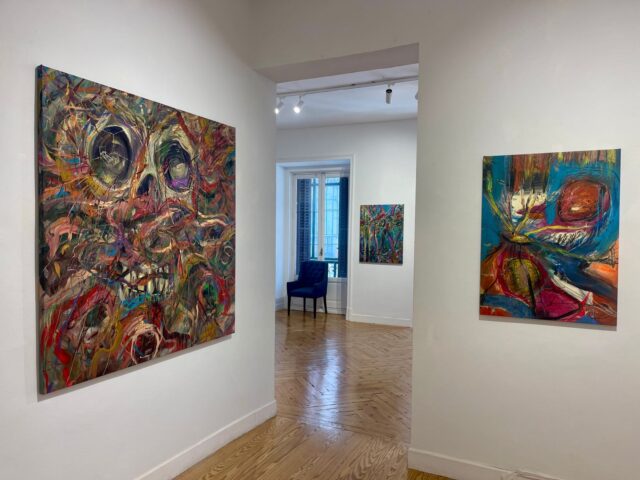
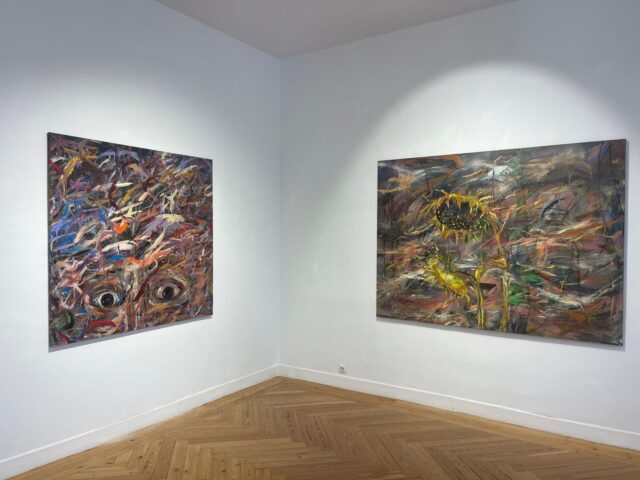
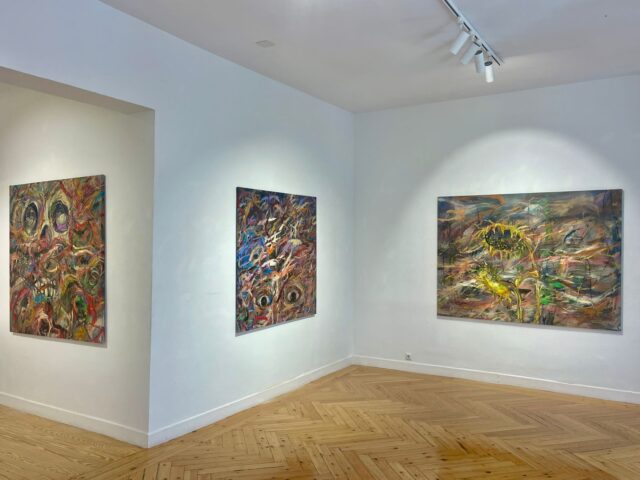
Her work has been part of numerous exhibitions also at Passelle Centre D’Art Contemporain in Brest, France; Matadero, Museo C.A.V. La Neomudéjar, Museo Ciudad del Arte Zapadores, Centro Cultural La Casa del Reloj, PHOTO España and ARCO in Madrid, Spain; Museum of Contemporary Art of the Americas, Miami, Sidney and Berne Davis Art Center, Fort Myers, and Museum of Arts and Science, Daytona, United States; ART Lima in Peru; Museo Nacional de Arte Moderno “Carlos Mérida”, Museo Miraflores, Fundación Rozas Botrán, Guatemala City, Guatemala; among others.
Joaristi has been awarded several prizes, including the Artist of the Future Award from Contemporary Art Curator Magazine (2020) and the Emerging Artist Award Dubai from TAG Gallery (2016). Her work has been featured in publications such as "Lenguaje Sucio" from Editorial Hypermedia in Miami, United States (2019), and " Entre Siglos" from the Rozas Botrán Foundation in Guatemala (2016). And in private collections in Chile, France, Mexico, Madrid and others and important public collections among which stand out those of the Wifredo Lam Museum in Cuba, the Museum of Decorative Arts and Design in Latvia, the C.A.V La Neomudéjar Museum in Spain, and the Museum of Contemporary Art of the Americas, United States.
About the curator:
Carlos Jiménez (Cali, Colombia, 1947) is a prominent art critic, historian, writer and exhibition curator. Trained as an architect at the Universidad del Valle, where he was also a professor of Art Theory and History, he completed advanced studies in Art Theory and History at the National University of Colombia and Philosophy at the Autonomous University of Madrid. Since 1980 he has lived in Spain, alternating his academic and critical work with curatorial projects.
Professor Emeritus of Aesthetics at the European University of Madrid, Jiménez has collaborated with prestigious publications such as El País, El Mundo, Lápiz, Artecontexto and ArtNexus, among others, as well as being part of the editorial team of the magazine Brumaria. His influence has been key in the internationalization of Latin American art, promoting the careers of artists such as Doris Salcedo and Oscar Muñoz.
Among his books are “Epifanías. Mystics and Prophets in Contemporary Art”, “Strangers in Paradise: Views of the Art of the Eighties”, “The Faces of Medusa: Studies on Photographic Rhetoric and the Poetry Travesía del ojo”. As a curator, he has directed exhibitions in Europe, Latin America and North Africa, exploring themes that connect contemporary art with its social and cultural context. His work reflects a critical vision of modernity, articulating reflections on photography, architecture and artistic practices in a constant dialogue between theory and creation.

